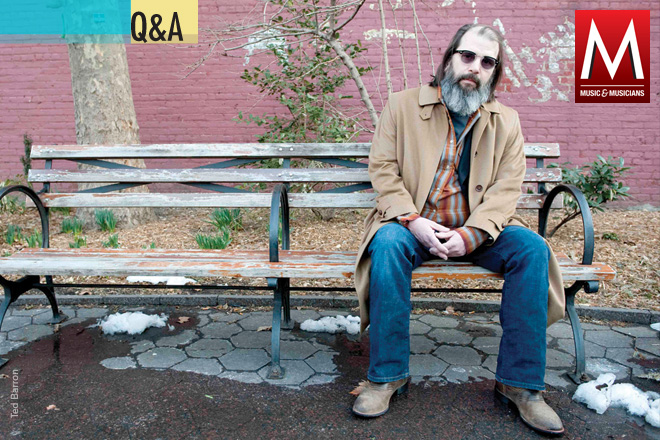STEVE EARLE
How a singer-songwriter, actor and activist learned to be a novelist
Singer and songwriter Steve Earle will soon release both a new T Bone Burnett–produced album and his first novel—both named for the Hank Williams classic “I’ll Never Get Out of This World Alive.” Earle struggled with drug addiction in the late 1980s and early 1990s, but his high these days is productivity: He’s also writing a play, acting on HBO’s Treme and adjusting to life as a new father—he and wife Allison Moorer welcomed a baby boy into their New York home last year.
How was working with T Bone?
It was hugely liberating. My last record [2009’s Townes, a tribute to the late singer-songwriter Townes Van Zandt] was all somebody else’s songs, so for this one I spent a lot of time writing. T Bone worked on the record a lot longer than I did. He was involved from beginning to end. He wakes up every day intending to make art. That’s what he and I have in common. It was a great experience. There was a time when I would never have allowed anyone else to touch anything with my name on it.
What changed that?
Well, I’ve been clean for 16 years. One of the things you have to do in order to stay clean is to not fool yourself about what you’re in control of. Why hire T Bone Burnett and then try to tell him how to put the record together?
Did you know during recording that the album and book would be companions?
Not until I sequenced it. I did know the album was about pushing things as far past the decimal point as possible literarily. The book was always going to be called I’ll Never Get Out of This World Alive for obvious reasons: Hank Williams’ ghost is a character in it.
This isn’t as political as some of your other albums.
Well, it’s less political than Jerusalem [2002] and The Revolution Starts Now [2004], but it’s as political as Copperhead Road [1988]. That’s a much more political record than people give it credit for. It was my post-Vietnam record.
How would you compare songwriting to writing a novel?
A book is really hard. This took almost eight years. There’s a lot of feeling around in the dark when you’re used to a shorter form. I’m much more old-fashioned, and that comes from songwriting—a beginning, middle and an end. I had to learn how to get a lot of information out and to develop some sort of narrative in three to four minutes.
Did having a baby influence you?
Probably. It’s the ultimate expression of optimism to have a baby in your mid-50s. Now I want to be in shape to throw a baseball in six or seven years.
Will you encourage your new son to follow in the family business?
I have no reason to discourage anybody from doing this. Nothing bad that’s happened to me has had anything to do with what I do for a living. I would have been an addict if I’d been a carpenter.
Do you feel part of a genre?
I come up three different ways in crossword puzzles: country, folk and country-rock. There’s nothing you can do about it. This is the most country record I’ve made in a long time. But it’s my idea of country music, which has always been different than Nashville’s idea of country music.
–Jeff Tamarkin




comment closed